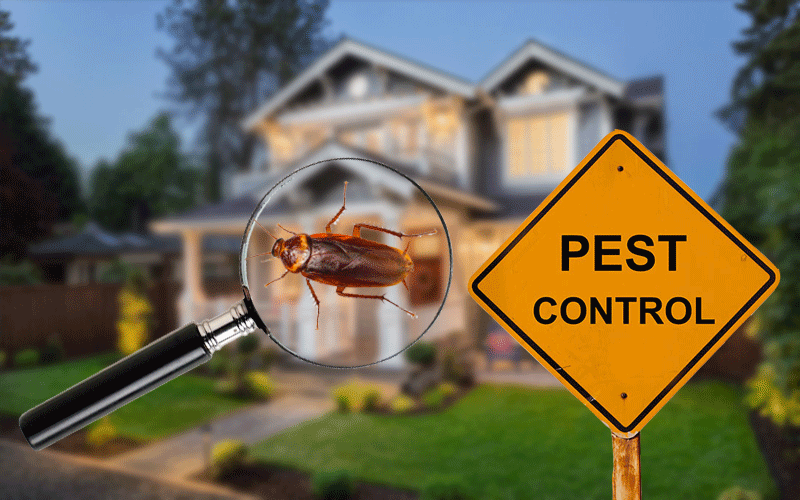Dependable A1 Bed Bug Exterminator Charlotte - Do Away With Bed Bugs Rapid
Dependable A1 Bed Bug Exterminator Charlotte - Do Away With Bed Bugs Rapid
Blog Article
Bed Insect Therapy Breakdown: Comparing Chemical Vs. Non-Chemical Solutions
In the realm of bug control, particularly when managing the persistent concern of bed insects, the option between chemical and non-chemical therapy options can be an essential one. Both approaches supply unique benefits and disadvantages, affecting elements such as performance, safety considerations, and general expense. By analyzing the nuanced details of each technique, a more clear understanding of which course to go after in attending to a bed bug problem can be obtained.
Efficiency of Chemical Treatments
Chemical therapies for bed bug problems have been commonly recognized for their quick and potent efficacy in eradicating these parasites. When thinking about the performance of chemical therapies, it is vital to understand that they can provide a quick and thorough service to a bed bug issue.
Moreover, chemical treatments have the advantage of offering recurring results, suggesting that they can remain to get rid of bed insects even after the preliminary application. This recurring action is particularly helpful in combating any kind of potential re-infestations. Additionally, the fast action of chemical treatments can bring relief to individuals facing severe bed bug infestations, allowing them to reclaim control of their home promptly.
Safety Interest In Chemical Solutions
When utilizing chemical services for bed insect therapy is guaranteeing the safety of occupants and the environment,One critical aspect that needs mindful factor to consider. While chemical therapies can be efficient in removing bed pests, they might present risks otherwise managed effectively. One of the key security concerns with chemical remedies is the prospective injury they can cause to human wellness. Exposure to certain chemicals made use of in bed pest therapies can bring about respiratory problems, skin irritation, or various other adverse reactions, particularly in individuals with pre-existing conditions or sensitivities. Furthermore, improper application or dose of chemical pesticides can lead to hazardous deposits remaining in the treated location, posing long-term health and wellness dangers to residents.
Additionally, the environmental impact of chemical solutions is an additional significant factor to consider. Some pesticides utilized in bed insect treatments might be unsafe to advantageous insects, wild animals, and communities if they leach into the dirt or water systems. It is vital to use chemical therapies deliberately, adhering to safety and security guidelines, and considering less hazardous alternatives to minimize these risks and make certain the safe and effective administration of bed insect invasions.
Benefits of Non-Chemical Strategies
Taking into consideration the prospective safety and security problems and environmental effect connected with chemical remedies for bed bug treatment, checking out non-chemical strategies provides an appealing option with a number of distinctive advantages. Non-chemical approaches provide a safer choice for households, especially those with family pets, children, or people delicate to harsh chemicals. These strategies eliminate the about his risks of exposure to hazardous materials, decreasing the capacity for adverse health and wellness impacts. Additionally, non-chemical treatments are eco pleasant, as they do not add to air or water contamination, making them a lasting selection for insect control.
Furthermore, non-chemical options can be efficient in targeting bed pests, consisting of hard-to-reach locations where chemical therapies may not penetrate - A1 pest control services charlotte. Approaches such as heat treatment, vacuuming, steam cleansing, and bed mattress coverings supply comprehensive elimination without the use of hazardous chemicals.
Limitations of Non-Chemical Treatments

Furthermore, non-chemical treatments typically need several applications to accomplish effective obliteration. This can be time-consuming and might not always ensure full elimination of all bed bugs and their eggs, particularly in hidden or hard-to-reach locations.
Moreover, the success of non-chemical treatments greatly relies upon correct implementation and thoroughness, official source which can be challenging for individuals without expert expertise. Inadequate application of non-chemical techniques may lead to insufficient obliteration, causing consistent infestations and the need for additional treatments.
Consequently, while non-chemical therapies have their benefits, it is vital to recognize these limitations and consider them when figuring out the most efficient strategy for handling bed bug invasions.
Price Comparison: Chemical Vs. Non-Chemical Options
Provided the constraints related to non-chemical therapies, a crucial facet to assess in the context of bed bug administration is the cost contrast in between chemical and non-chemical alternatives. Chemical treatments usually entail the application of insecticides by specialists, which can vary from $250 to $900 per space, relying on the intensity of the invasion and the size of the location to be treated. In comparison, non-chemical treatments like heat therapy or steam can be extra pricey, with expenses ranging from $1,000 to $6,000 for an entire home. While the initial cost of chemical treatments might seem lower, multiple therapies might be needed to totally eradicate the infestation, possibly raising the total cost. On the other hand, non-chemical options might give a more environmentally friendly and sustainable remedy, although they can be cost-prohibitive for some individuals. Ultimately, when thinking about the price of bed insect therapy choices, it is essential to evaluate the in advance costs against the efficiency and long-lasting sustainability of the selected technique.
Conclusion

Taking into consideration the prospective safety concerns and ecological effect linked with chemical remedies for bed pest therapy, exploring non-chemical approaches presents an appealing option with several unique benefits.Provided the constraints linked with non-chemical therapies, a vital aspect to review in the context of bed pest monitoring is the price contrast between chemical and non-chemical alternatives. In contrast, non-chemical treatments look at this now like heat treatment or heavy steam can be more costly, with expenses varying from $1,000 to $6,000 for an entire home. While the first expense of chemical treatments may appear reduced, multiple therapies might be required to completely remove the infestation, potentially enhancing the general price.In conclusion, when comparing chemical and non-chemical bed bug therapy choices, it is essential to consider efficiency, security, advantages, limitations, and expense.
Report this page